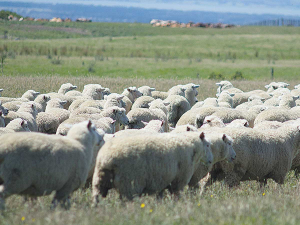Move over ham, here comes lamb
It’s official, lamb will take centre stage on Kiwi Christmas tables this year.
 Beef+Lamb NZ is predicting a 26% fall in the average farm profit on sheep and beef farms in the coming year.
Beef+Lamb NZ is predicting a 26% fall in the average farm profit on sheep and beef farms in the coming year.
New Zealand beef and sheep farmers are facing more than 25% less income in the season ahead.
That’s the conclusion of Beef+Lamb NZ (BLNZ) in its recently released new season outlook for 2020-21. It is forecasting lamb export receipts to decline by almost 15% and sheepmeat co-products to decline by around 8% compared to the 2019-20 season. Beef and veal export revenue is forecast to decline by 9% on 2019-20.
“The uncertainty in the export market will be reflected in farm-gate prices and subsequent farm profitability,” says BLNZ’s chief economist Andrew Burtt.
The outlook predicts that the average farm profit before tax on sheep and beef farms in New Zealand will fall 26% to an average $115,100 this season.
BLNZ says the disruption caused by Covid-19 is expected to reach into next year with global economies, consumer demand and trading channels all impacted.
“Increasing competitiveness in key beef export markets also has the potential to alter the trading environment,” the report adds.
“Despite this, there are solid underlying market fundamentals that will continue to support demand for New Zealand sheepmeat and beef exports.”
BLNZ believes China’s demand for meat protein will continue to be fuelled by pork shortages that have resulted from African Swine Fever (ASF).
“There is growing demand for high-quality, nutritionally rich proteins,” the report says. “A shifting consumer preference towards food safety will also support demand for New Zealand sheepmeat and beef.”
However, BLNZ concedes that this challenging environment is expected to result in a decline in both sheepmeat and beef export receipts in 2020-21.
“Average export values are forecast at similar levels, or slightly above, five-year averages,” it says.
“The trading environment will also face ongoing uncertainty around key trade negotiations. Brexit outcomes and the deteriorating relationship between the US and China will have an influence on market dynamics in the new season.”
BLNZ says, on farm, the uncertainty in the export market will be reflected in lower farm-gate prices and subsequent farm profitability.
“The drought of 2020 will have a continuing adverse impact on lamb and beef production in the new season,” it adds. “Wool returns are forecast to remain depressed, with shearing expenses still on the rise.”
Overall, BLNZ is picking gross farm revenue to decline for the year ahead.
It blames market disruption as a result of Covid-19 as the predominant driver of the decline in sheepmeat export revenue.
“The decline in food service sector demand has adversely impacted export sales for New Zealand’s high-value frozen lamb. This is particularly evident in the US and EU.”
It adds that weaker global economic conditions have also resulted in lower consumer spending, and greater price sensitivity.
“The outcome of Brexit negotiations will influence the sheepmeat trading environment in 2020-21,” the report says.
Meanwhile, BLNZ believes demand for sheepmeat will be helped by tighter global supplies, as production from both New Zealand and Australia is expected to be down.
“Continued demand from China for meat protein as a result of ASF-induced pork shortages will also be a positive driver of demand in 2020-21.”
On the beef front, things are a little more positive, with BLNZ expecting global beef trade in the 2020-21 season to grow increasingly competitive.
“This, combined with weaker consumer demand as a result of Covid-19 and trade tension between New Zealand’s leading export markets China and the US is forecast to weigh on beef demand in the outlook period,” it says. “Declining food service demand has also impacted beef demand. However, a higher proportion of New Zealand beef exports can be transferred into the retail sector.”
Much of New Zealand’s beef is an ingredient used in supply chains that can service both food service and retail.
“Ground beef sales have been a strong performer in the post-Covid world.”
BLNZ also suggests that – again – ASF and growing demand for quality proteins from the affluent Asian consumers will remain key drivers of demand for NZ beef.
The Meat Industry Association (MIA) is once again looking for game-changing ideas for New Zealand's red meat processing and exporting sector.
Environment Southland is inviting feedback on two bylaws that play a critical role in safeguarding the region's waterways and ensuring the safety of the local community.
While the North Island is inundated with rain, Southland is facing receding water levels as warm weather and lack of rainfall continues.
Entries have opened for the 2026 Fieldays Innovation Awards.
Organisers are expecting another full field of 40 of the country’s top shearers for the popular Speed Shearing event at this year’s Southern Field Days at Waimumu.
The Southern Field Days Innovation Awards have a great record in picking winners and the winner of the 2024 event will be putting up a display to support the event at this year’s show.